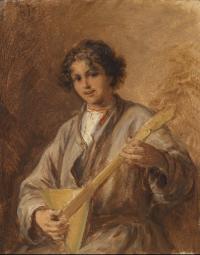Performing Print in the Western Art-Song Tradition, c.1800-1900

Supervisors:
Professor Philip Bullock, Faculty of Medieval and Modern Languages and Faculty of Music, and Professor Laura Tunbridge, Faculty of Music
Project outline:
Recent scholarship in both literary studies and historical musicology has emphasised the extent to which certain forms and genres are not merely bound to the printed page, but circulate in social spaces through acts of performance. Similarly, hermeneutical approaches that have tended to privilege the text as an instantiation of authorial intention and site of meaning and signification have been complemented by an interest in the affective and cognitive elements implied or inherent in a work’s reception. This is particularly the case in the art-song tradition, where a well-established corpus of work on word-music relations has been challenged by the rise of performance studies and an emphasis on questions of embodiment and emotions. Art song thus becomes a way to test the construction of an ‘imagined community’ not through print, but through performance. Akin to practices of memorisation and recitation in the literary field (topics that have themselves proved productive in recent literary studies), song implicitly proposes a view of poetry that lives in the moment of its utterance and dissemination within society.
It is expected that the doctoral candidate will concentrate on a particular composer or art-song repertoire in relation to at least one other country or language culture.
This historical focus is on the ‘long’ nineteenth century – a ‘golden age’ for song in a range of national cultures. The proposed DPhil topic will examine the interaction between song’s printed contexts (whether in the form of musical scores or anthologies of song lyrics) and what can be reconstituted of its performing histories. Focusing on the era before recorded sound became fully established, the project will attend to the spaces, networks and individuals who facilitated song’s ‘publication’ beyond the printed page. Potential sources include a range of printed materials – scores, anthologies, reviews, letters, memoirs, catalogues, publishers’ archives, programme notes and publishers’ papers – which can be mined for traces of songs’ performance contexts, reconstituting their social contexts and theorising how performance can be understood as a form of non-textual publication.
Oxford is an ideal place to carry out this project, given the outstanding resources of the Bodleian and Taylorian libraries in both English literature and a wide range of foreign languages, and the possibility for practical collaboration with the Oxford Lieder Festival. Co-supervision by Philip Bullock (Modern Languages) and Laura Tunbridge (Music) would ensure expert oversight by scholars with research specialisms in various aspects of song culture, and with competences in a number of languages (English, French, German, Russian). This multi-lingual aspect is important, because it will encourage the DPhil student to trace local practices within individual historically constituted sites (salons, concert halls, etc.) but also to extend across the spaces of the nation and even towards the transnational.
Application process
Candidates should apply for the DPhil in Music by 11 January 2019. Applications should specify which song tradition they propose to study, giving details of any period, repertoire or composers they are particularly interested in. A degree in musicology and/or modern languages is a prerequisite, as is – where relevant – reading competence in any relevant foreign languages (although further training may be available). The scholarship will cover tuition fees, colleges fees and provide a living allowance at Research Council rates. Candidates from all backgrounds are welcome to apply, although the Leverhulme Trust has a preference for supporting Home/EU candidates.


